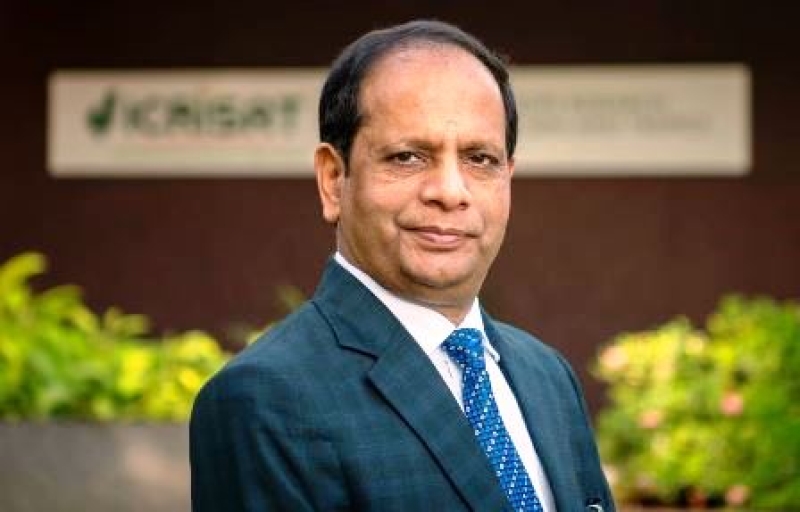- Intimidation or bloodshed cannot halt Bangladesh’s march to democracy |
- Khaleda Zia integral to an important chapter in BD history: Yunus |
- Enthusiasm marks Victory Day celebrations across Bangladesh |
- Dhaka-Delhi ties deep; to be shaped by trust, dignity, mutual respect |
- EU deploys election observation mission to Bangladesh |
South-South Cooperation: Crucial for Transforming Agriculture

Dr Himanshu Pathak, Director General of ICRISAT and the first national of India to hold the post
by Dr Himanshu Pathak, Director General of ICRISAT
Agriculture remains the backbone of livelihoods, employment, and food security across the Global South. From West African millet fields to South Asian rice paddies, the sector not only sustains communities but contributes significantly to national GDPs and employs a large share of the population, particularly women and youth. Yet, despite this central role, agriculture’s full potential to drive inclusive, long-term growth remains underutilized.
Persistent structural challenges continue to hold the sector back. Low productivity, climate vulnerability, land degradation, and limited access to finance and technology are compounded by shifting global dynamics. Development assistance is becoming less predictable, and traditional funding streams are narrowing as powerful geopolitical priorities change.
In this evolving landscape, countries in the Global South must increasingly look to one another, not just to traditional donors and partners, for collaborative, home-grown solutions.
This is where South-South and Triangular Cooperation (SSTC) becomes indispensable. The Global South is rich in Indigenous knowledge, context-specific technologies, and tested development models. Nations facing similar agroecological and socio-economic conditions are uniquely positioned to exchange relevant and resilient innovations. What’s needed now is the confidence and infrastructure to scale this cooperation, turning isolated successes into shared progress.
The history of the Green Revolution offers a compelling precedent. While often associated with scientific breakthroughs originating in the Global North, its real-world success was shaped and institutionalized in the Global South.
Countries like India, Mexico, and the Philippines were not mere recipients of imported technologies—they actively adapted, refined, and scaled innovations to suit their unique agricultural, social, and ecological contexts.
"The lesson is clear: with the right partnerships, institutional support, and political will, transformative agricultural innovation can originate—and thrive—in the Global South" - Dr Himanshu Pathak
At a more practical and applied level, institutions grounded in the Global South continue to be instrumental in driving this transformation to unprecedented levels. A prime example is the International Crops Research Institute for the Semi-Arid Tropics (ICRISAT), headquartered in India with research sites across sub-Saharan Africa.
ICRISAT has been at the forefront of developing context-specific solutions for dryland agricultural communities. Its innovations include the world’s first commercial pigeonpea hybrid, the first machine-harvestable chickpea, and Africa’s first biofortified pearl millet. These breakthroughs not only enhance food and nutritional security but also showcase the frontier scientific leadership emerging from the Global South, challenging traditional narratives.
The lesson is clear: with the right partnerships, institutional support, and political will, transformative agricultural innovation can originate—and thrive—in the Global South.
Today, the call is not to replicate that past, but to reimagine a new future—one led by Southern institutions, knowledge systems, and collaboration. SSTC is not a fallback; it is a forward-looking strategy for resilience, self-reliance, and equity.
To advance its commitment to scaling innovation across the Global South, ICRISAT is taking bold steps to institutionalize this approach through the launch of the Center of Excellence for South-South Cooperation in Agriculture (ISSCA).
The Center will be introduced at the Conference on Global South and Triangular Cooperation: Emerging Facets, which will take place in New Delhi from 3–4 June 2025.
Convened by the Research and Information System for Developing Countries (RIS)—an autonomous institute under India’s Ministry of External Affairs—the conference provides a dynamic and inclusive platform to amplify Global South leadership in fostering collaborative and equitable development.
During a dedicated session, ICRISAT will unveil two key initiatives: the ISSCA knowledge exchange portal and the signing of a Memorandum of Understanding with DAKSHIN, a Government of India initiative focused on strengthening South-South cooperation through capacity building and development partnerships.
The ISSCA portal is envisioned as far more than an information hub—it will be a practical engine for transformation. As a dynamic repository of validated, field-tested, and scalable innovations, it fosters collaboration among national programs, development agencies, private sector actors, and emerging partners.
Through this platform, stakeholders will gain access to ready-to-deploy agricultural solutions that address real-world challenges—from advanced advisory tools driving climate-smart farming to transformative policy models that weave together agriculture, nutrition, gender equity, and rural entrepreneurship—covering the full spectrum of innovation needed for lasting impact.
By fostering peer learning, brokering cross-border partnerships, and promoting knowledge exchange framed by local realities, ISSCA is designed to accelerate adaptation and innovation where it’s needed most. It will deliver solutions at lower cost and risk for those least able to bear them, ultimately empowering communities to build resilient and sustainable futures.
In an era marked by climate urgency, tightening development aid, and domestic agendas quietly reshaping the balance of global alliances, the Global South and the many within it who yearn for a better future cannot afford to wait.
It must lead with conviction and in solidarity. The launch of ISSCA is not just a programmatic milestone—it is a powerful signal of leadership and a call to action for all who believe that agriculture remains the foundation of equitable growth, resilience, and self-determined progress across the Global South, led by the Global South.
It is also a rare and urgent opportunity—for governments, communities, researchers, and farmers—to come together, share solutions, and build a fairer, more secure future that leaves no one behind.

